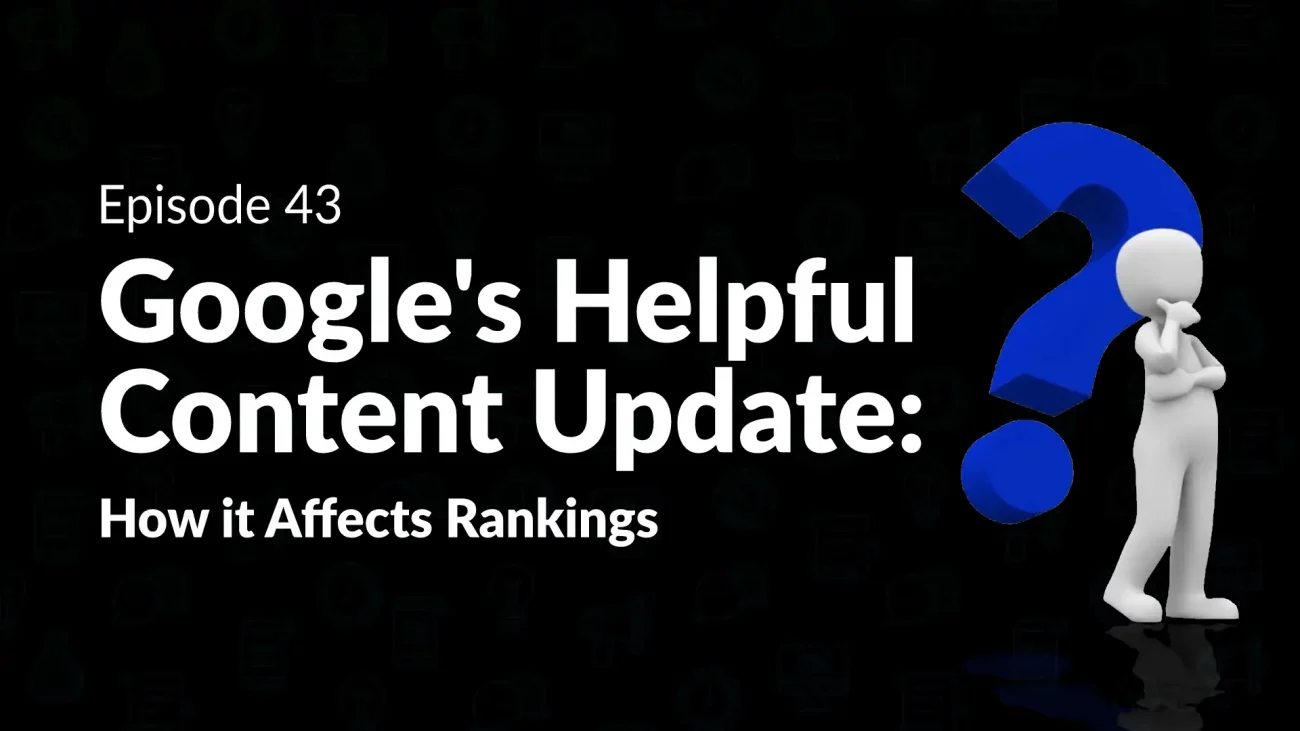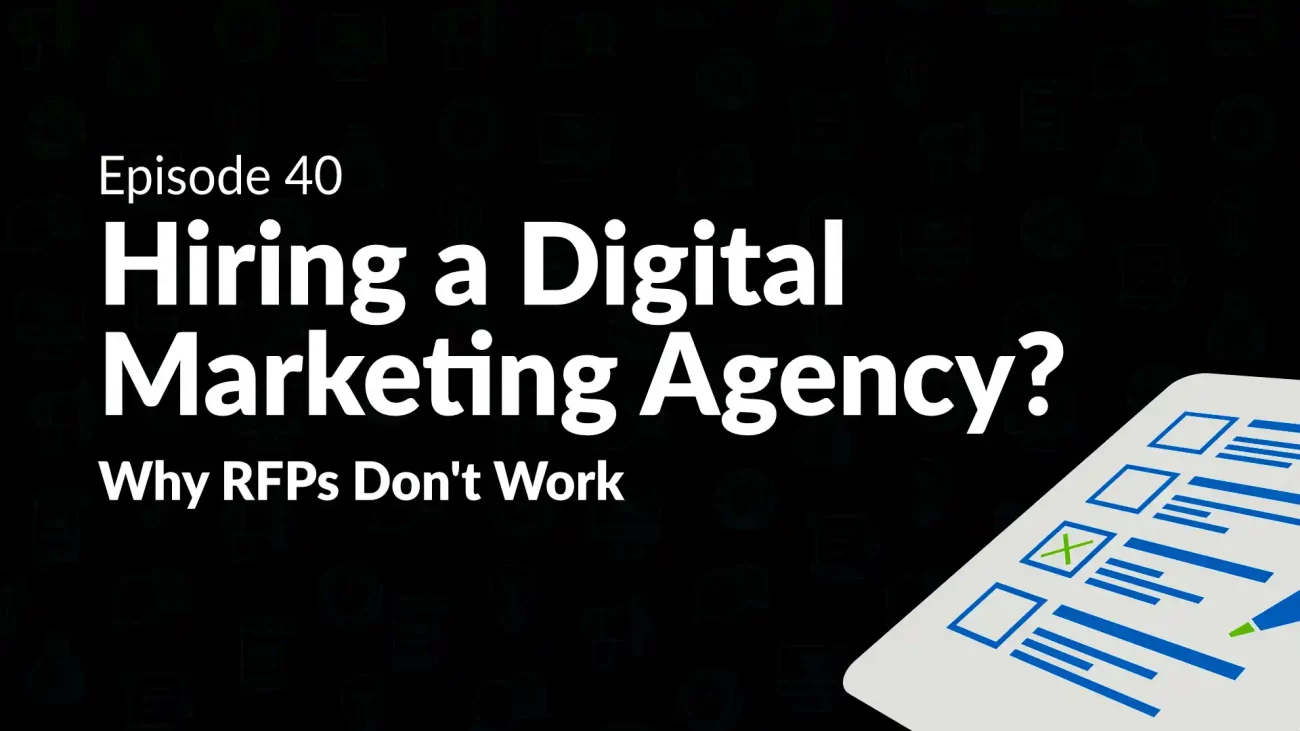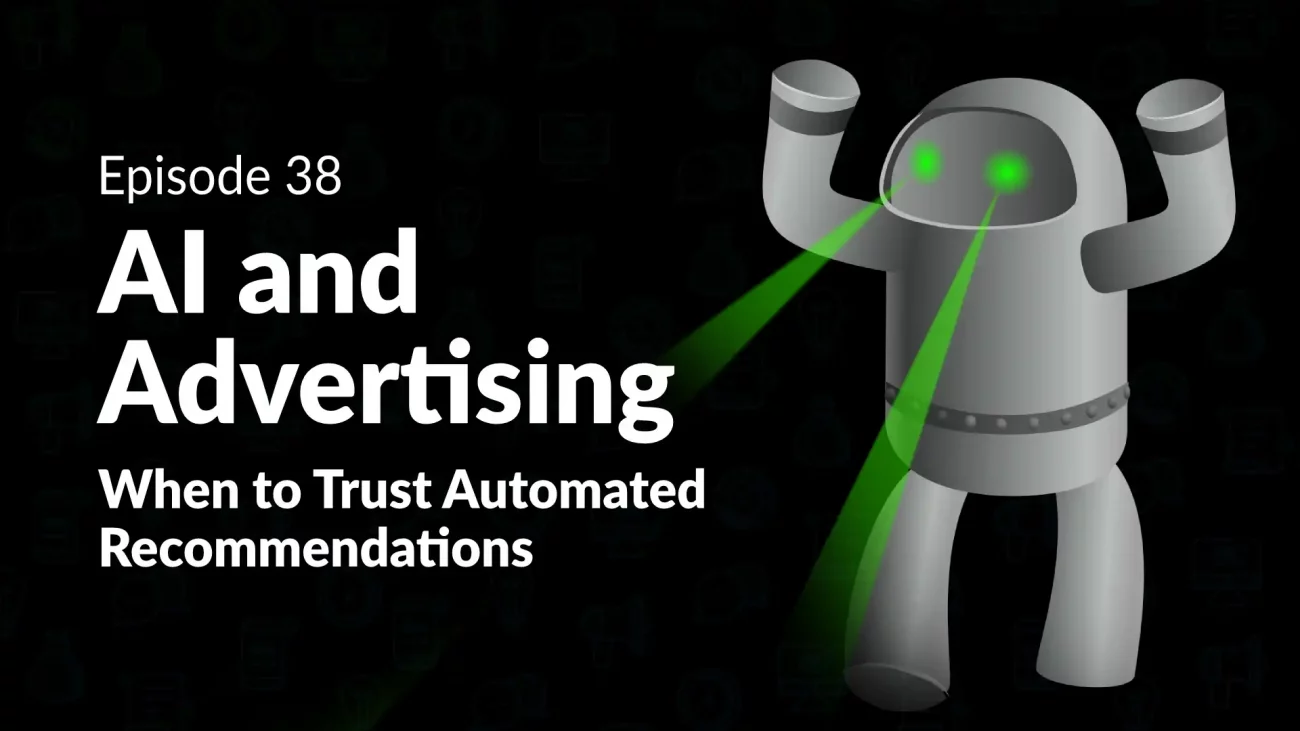Episode 8: Does Your Site Have 500 Errors?
Hans and Devin describe what 500 errors are and explain how they can spin out of control and destroy your search ranking.
Transcription:
Devin:
You’re listening to Digital Marketing Mondays. Each week, we bring you new and exciting content from around the marketing industry and help give you, the marketer, insights into what’s happening. We’ll offer our advice and share some takeaways to help you develop better strategies for your marketing. Ideally, this will also help you improve your ROI as well. So with that, let’s tune into this week’s episode.
All right, Hans, what do we have today?
Hans:
Today, Devin, we’re going to talk about 500 error codes. I’m a little old school here. I know about 301 redirects, and 302s, and 404 errors, which is a page not found, which is really bad, especially if it’s a paid click. But I’m hearing about 500 error codes and I’m wondering if you might be able to give us a little bit of, what is a 500 error code and what causes it, first of all?
Devin:
It’s a really good question. Often, it’s kind of funny, it’s something that lies or lurks in the depths of websites and sometimes not caught. But a 500 error code, it’s another flag that something is wrong with your website. But usually, in this case, it’s a result of a server misconfiguration. Where 3X and 4X errors, those are typically looking at things that you control inside of your content management system, like WordPress, a 500 server error is typically something involving your hosting provider having an issue. Your website development process could also misconfigure something on the server, but typically, it is controlled by the hosting provider and the server providers. So something like a CDN malfunctioning, or one of your hosting providers having some issues with their site hosting, those are very common for 500 issues.
Hans:
Okay. So what does a 500 error mean? What does that tell you? What triggers it?
Devin:
It’s just another code to be able to help dissect what’s wrong with the site. In this case, it’s saying that pages are inaccessible by the user. The 5 in the 500 delineates that it is server related. Then any subsequent 501, 502, those all then will help indicate what the more specific issue at hand is. But generally, anything in the 500s is that server-related issue.
Hans:
So as opposed to 400, like a 404 error, you could have a broken link in the site or something like that, that points to a nonexistent page.
Devin:
This is not found.
Hans:
This isn’t a page isn’t found. It’s not on your site. It has more to do with either the hosting, the CDN, the way the page content is transmitted to the user. Is that correct?
Devin:
Exactly. Yep. You got it.
Hans:
Okay. Okay. Obviously, if a user can’t get to a page they want to get to, that’s a problem. Does it have any other negative effects on you in terms of your relationship with the search engines, anything like that?
Devin:
Absolutely. After a given amount of time, similar to even 400 errors, pages will be de-indexed by Google. This came up in a recent conversation from John Mueller, whom many SEOs know. They bow at his altar. He’s the chosen one when it comes to SEO. Everybody loves asking him weird, interesting, but insightful questions. This came up recently in a conversation. The bottom line is, if you have 500 errors, error codes that result when people are trying to look for content on your site, it will be de-indexed over time. How much time? Not clear and great Google answer to have. It’s whenever, eventually Google decides that it’s valuable to de-index it. So it could be weeks. It could be months. But typically, the faster you get it resolved, the better off you’re going to be.
Hans:
I would guess that a server would, once in a while, have a hiccup or something like that. Is there a threshold where you can say, “Oh, this is below the noise level. This is just typical behavior. This is not something to worry about.” Is it 1%, 5%, 10%? What would you say? Where would you think that a website owner should start to get concerned?
Devin:
A couple of ways to think about that. And one, I would say, if it’s a temporary issue, usually most of these hosting providers can resolve issues within an hour or so. It shouldn’t even be a blip on your radar. You probably won’t even catch it, to be frank. But if you have pages that are consistently having some type of server misconfiguration error, and it lasts for a while, that’s when it should be concerning, at least when it comes to Google de-indexing the pages. In terms of the number of those pages, having configuration errors, I would say generally, if it’s a large site, John Mueller actually said specifically, if 1% of your pages have 500 error codes, then that is probably an area of concern. Or, more than that. I think for a lot of small sites, anything under 5% is a good litmus to have in mind.
Hans:
How can I find out if my site is subject to producing error codes? How can I find out whether or not I have a problem in this regard?
Devin:
Of course, you got to know how to find the issue before you can actually resolve it, right?
Hans:
Exactly.
Devin:
I think the first and probably the easiest method, if you haven’t already, is install Google Search Console. In the Search Console, based off the indexing that Google does, it will tell you if there are noticeable or any 500 errors, which URLs they are. And frankly, it’ll also probably tell you how to fix it, too, depending on the code that comes back as part of the indexing process. The other way to do it is, using Screaming Frog, which is a very popular crawler tool. You can use it for free for the first 500 URLs. I think for a lot of businesses and site owners, that’s probably within the threshold that’s allowed. But they have all the error codes clearly marked out. Then you can look and see what URLs are producing which codes. That’s a free and easy way to be able to actually check.
Hans:
Personally, I probably would trend or tend to lean a little more towards Search Console, because I’m more concerned about what Google thinks of my site than some random error that pops up in a crawler. Screaming Frog is a great product. But, I’m also concerned about what Google is seeing, not just what shows up on a, it’s a kind of snapshot, right? When Screaming Frog crawls a site, it’s a snapshot. Google will probably report it, especially if it’s recurring or something like that. You would see that in the Search Console and it would give you an indication of whether you should be concerned or not, okay? Is that correct?
Devin:
Mm-hmm (affirmative). Absolutely. Yep. You got it.
Hans:
All right. Well that sounds good. Anybody need help with this kind of stuff, you have any questions, suggestions for other topics, we’d love to hear them. But thanks, Devin. It’s been great. I really appreciate you enlightening me and our audience on this.
Devin:
Absolutely. Thanks for having me. We’ll see you later.
Hans:
All right. Bye.
Devin:
Thank you so much for tuning in. We really appreciate you taking the time out of your busy day to engage with our content. Whether you’re watching on YouTube or subscribed on our podcast apps, we appreciate you taking the time. Make sure to leave a comment down below and let us know any feedback that you have for us. We’re always watching the comments and engaging in any way that we can. So if you find this content useful, also make sure to subscribe or give it a big thumbs up. We appreciate it. Thanks so much.









